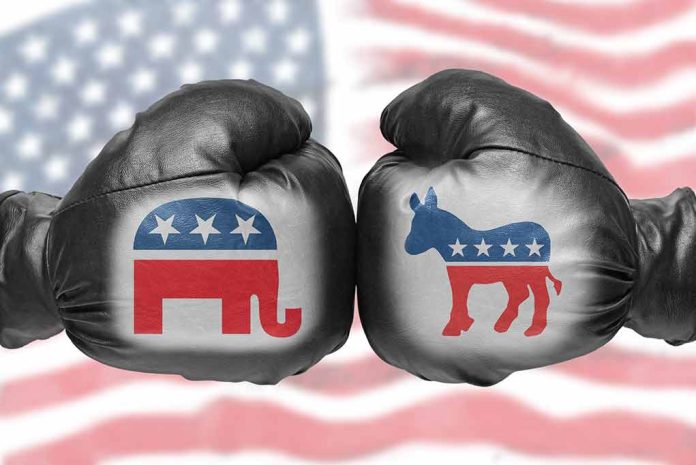
The Imane Khelif controversy has reignited the debate over fairness and inclusion in women’s Olympic boxing after a medical report suggested gender discrepancies.
At a Glance
- Imane Khelif, a gold medallist, faces a gender controversy in Olympic boxing.
- A medical report suggests Khelif has characteristics associated with biological males.
- Surgical correction and hormone therapy recommended for Khelif.
- Debate intensifies on gender identity and fairness in competitive sports.
Gender Identity Under Scrutiny
Imane Khelif, an Algerian boxer, became a focal point in sports gender discussions after her opponent, Angela Carini, withdrew at the Paris Olympics. Reports indicate Khelif was born with male characteristics, including testicles and a micro-penis, a condition like 5-alpha reductase deficiency affecting sexual organ development. The contention involves questions about gender identity and its impact on female sports categories.
Conservative voices argue that biological sex, not gender identity, should determine eligibility in sports, ensuring that women’s categories remain fair and competitive.
The medical report, shared by journalist Djaffar Ait Aoudia, indicates an absence of a uterus and presence of gonads. This information, corroborated by endocrinologists, highlights the complexities in determining division in sports. Critics argue for surgical intervention and hormone therapy for Khelif’s condition.
This situation calls attention to the need for clear and consistent policies that prioritize biological facts over subjective gender identity claims, ensuring that female athletes are not disadvantaged by competitors with male physical traits.
‘Big shame’: Women’s Olympic boxing gold medalist Imane Khelif condemns politicians who claim he is 'a transgender,' saying it dishonors his family, Algeria, and the Arab world to identify as such.
Speculation surrounds the male boxer who failed a chromosomal blood screen to… pic.twitter.com/zqZLBVA4T9
— ICONS (@icons_women) August 14, 2024
Impact on Sports and Society
Khelif’s disqualification from the 2023 World Boxing Championships, due to alleged test discrepancies, adds to the discourse. The International Olympic Committee (IOC) has expressed its stance against the IBA’s unchecked testing methods, emphasizing fairness and integrity. The controversy has drawn comments from public figures like Elon Musk and JK Rowling.
The disqualification only fuels concerns among conservatives that the Olympic body is not taking sufficient action to protect the integrity of women’s sports from potential male advantage, making it essential for the rules to evolve to safeguard fairness.
As for her opinion on her disqualification from the 2023 World Boxing Championships due to high levels of testosterone detected in her system, Khelif said that it is nothing but “a big conspiracy”.
Khelif’s case brings attention to gender identity regulations in sports, challenging the balance between inclusivity and competitiveness. Allegations against her have prompted reactions from fans and Algerian officials defending her presence at the Olympics.
Algerian boxer Imane Khelif called for an end to bullying athletes after she faced a wave of online abuse over misconceptions about her gender during the Paris Olympics. pic.twitter.com/Pl1sc5j181
— AP Sports (@AP_Sports) August 5, 2024
An Unresolved Debate
Opinions remain divided on Khelif’s participation. While some argue biological differences could influence competitive fairness, others underscore the right to compete based on assigned gender at birth. The IOC’s updated rules reflect the ongoing challenge in defining eligibility with scientific backing.
As the debate continues, the sports community looks for ways to accommodate the balance between inclusivity and fairness. The coming years could see significant changes in how sports bodies handle complex identity issues within competitive environments.
Conservatives are urging sports organizations to take a firm stance based on science and fairness, ensuring that policies protect the integrity of women’s sports for future generations.





